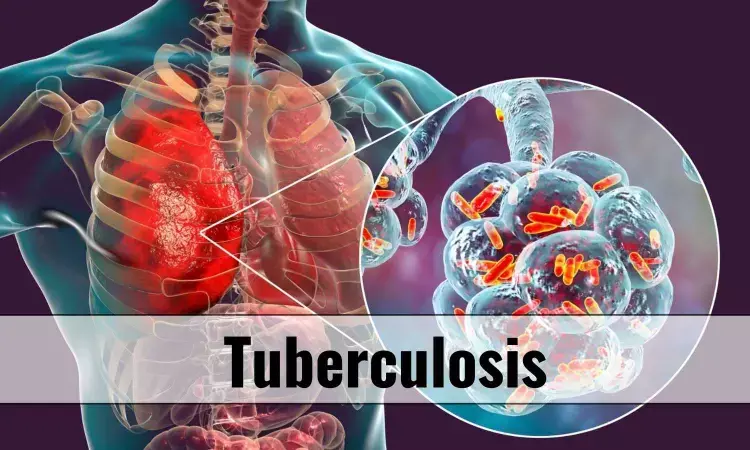- Home
- Medical news & Guidelines
- Anesthesiology
- Cardiology and CTVS
- Critical Care
- Dentistry
- Dermatology
- Diabetes and Endocrinology
- ENT
- Gastroenterology
- Medicine
- Nephrology
- Neurology
- Obstretics-Gynaecology
- Oncology
- Ophthalmology
- Orthopaedics
- Pediatrics-Neonatology
- Psychiatry
- Pulmonology
- Radiology
- Surgery
- Urology
- Laboratory Medicine
- Diet
- Nursing
- Paramedical
- Physiotherapy
- Health news
- Fact Check
- Bone Health Fact Check
- Brain Health Fact Check
- Cancer Related Fact Check
- Child Care Fact Check
- Dental and oral health fact check
- Diabetes and metabolic health fact check
- Diet and Nutrition Fact Check
- Eye and ENT Care Fact Check
- Fitness fact check
- Gut health fact check
- Heart health fact check
- Kidney health fact check
- Medical education fact check
- Men's health fact check
- Respiratory fact check
- Skin and hair care fact check
- Vaccine and Immunization fact check
- Women's health fact check
- AYUSH
- State News
- Andaman and Nicobar Islands
- Andhra Pradesh
- Arunachal Pradesh
- Assam
- Bihar
- Chandigarh
- Chattisgarh
- Dadra and Nagar Haveli
- Daman and Diu
- Delhi
- Goa
- Gujarat
- Haryana
- Himachal Pradesh
- Jammu & Kashmir
- Jharkhand
- Karnataka
- Kerala
- Ladakh
- Lakshadweep
- Madhya Pradesh
- Maharashtra
- Manipur
- Meghalaya
- Mizoram
- Nagaland
- Odisha
- Puducherry
- Punjab
- Rajasthan
- Sikkim
- Tamil Nadu
- Telangana
- Tripura
- Uttar Pradesh
- Uttrakhand
- West Bengal
- Medical Education
- Industry
Transient hyperglycemia tied to higher risk of unfavourable treatment outcome in pulmonary TB

Pune: A prospective cohort study has revealed that lack of diabetes treatment and transient hyperglycemia is associated with a higher risk of unfavourable treatment outcomes in patients with pulmonary tuberculosis. The findings were published online in the CHEST journal on 4 September 2023.
Researchers note the common occurrence of transient hyperglycemia during tuberculosis (TB) treatment, yet there seems to be no clarity on its association with unfavourable treatment outcomes. Geeta Pardeshi, Grant Government Medical College and Sir JJ Hospitals, Mumbai, India, and colleagues aimed to determine whether there is an association between glycated Haemoglobin (HbA1c) trajectories and tuberculosis treatment outcomes.
For this purpose, the researchers prospectively evaluated adults with pulmonary tuberculosis for 18 months after their second HbA1c measurement.
HbA1c trajectories during the initial three months of treatment were defined as follows – Incident hyperglycemia: HbA1c < 6.5% at baseline and ≥ 6.5% at three-month follow-up; Transient hyperglycemia: HbA1c ≥ 6.5% at baseline and <6.5% at three-month follow-up; Persistent hyperglycemia: HbA1c ≥ 6.5% at baseline and three-month follow-up; Persistent euglycemia: HbA1c < 6.5% at baseline and three-month follow-up.
Persistent euglycemia: HbA1c < 6.5% at baseline and three-month follow-up; Persistent hyperglycemia: HbA1c ≥ 6.5% at baseline and three-month follow-up; Transient hyperglycemia: HbA1c ≥ 6.5% at baseline and <6.5% at three-month follow-up; Incident hyperglycemia: HbA1c < 6.5% at baseline and ≥ 6.5% at three-month follow-up.
The association between HbA1c trajectories and unfavourable treatment outcomes of all-cause mortality, recurrence, and failure was measured using Multivariable Poisson regression.
The study led to the following findings:
- Of the 587 participants, 76% had persistent euglycemia, 20% had persistent hyperglycemia, and 4% had transient hyperglycemia.
- One participant had an incident of hyperglycemia and was excluded.
- Compared to participants with persistent euglycemia, those with transient hyperglycemia had a two-fold higher risk of experiencing an unfavourable treatment outcome (aIRR=2.07) after adjusting for confounders including diabetes treatment, and Body-Mass Index; a significant association with persistent hyperglycemia (aIRR=1.64) was not found.
- Diabetes treatment was associated with a significantly lower risk of unfavourable treatment outcomes (aIRR=0.38).
"Lack of diabetes treatment and transient hyperglycemia was associated with a higher risk of unfavourable treatment outcomes in adults with pulmonary tuberculosis," the researchers concluded.
Reference:
Pardeshi, G., Mave, V., Gaikwad, S., Kadam, D., Barthwal, M., Gupte, N., Atre, S., Deshmukh, S., Golub, J. E., & Gupte, A. (2023). Glycated Haemoglobin Trajectories and their Association with Treatment Outcomes among Pulmonary Tuberculosis Cases in India - A Prospective Cohort Study. CHEST. https://doi.org/10.1016/j.chest.2023.08.026
Dr Kamal Kant Kohli-MBBS, DTCD- a chest specialist with more than 30 years of practice and a flair for writing clinical articles, Dr Kamal Kant Kohli joined Medical Dialogues as a Chief Editor of Medical News. Besides writing articles, as an editor, he proofreads and verifies all the medical content published on Medical Dialogues including those coming from journals, studies,medical conferences,guidelines etc. Email: drkohli@medicaldialogues.in. Contact no. 011-43720751


